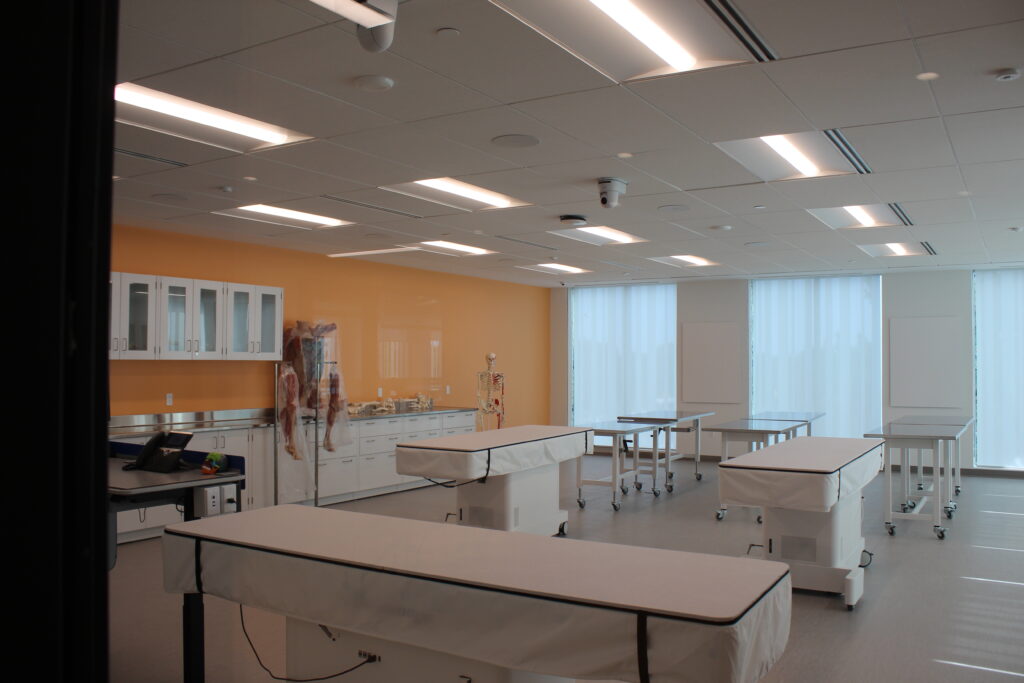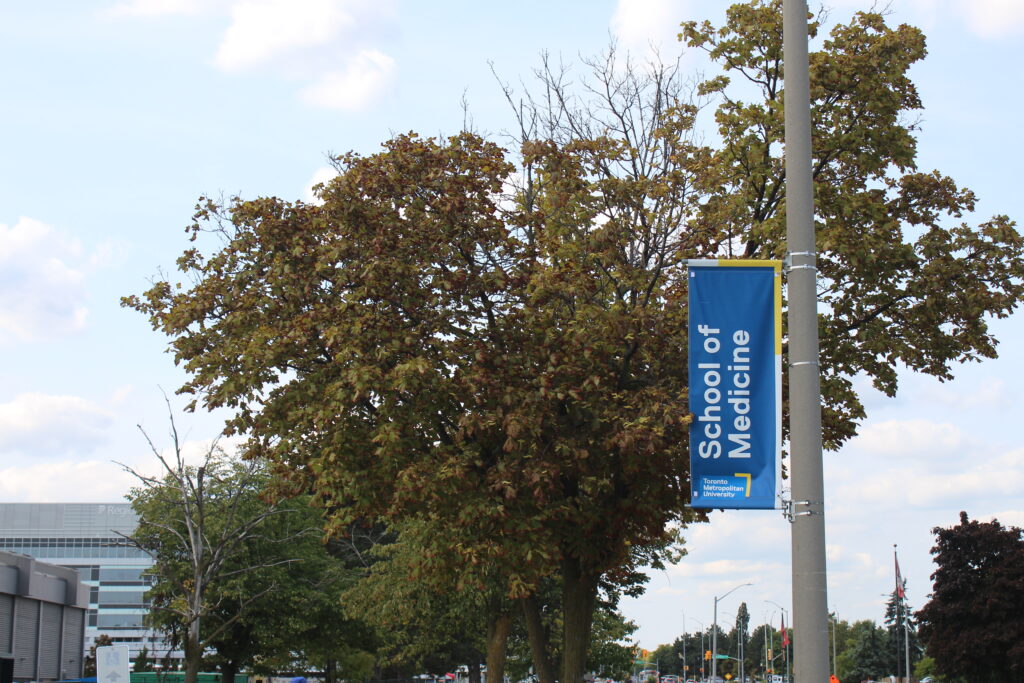
Listen to the whole story here:
Only TMU medical students are eligible to use the “Learners Mistreatment” service, which they view as a valuable resource for their education. President Mohamed Lachemi said it is required as part of the program’s accreditation process.
More than three weeks since its official inauguration, Toronto Metropolitan University (TMU) School of Medicine students are looking forward to how their cohort of aspiring doctors will shape their campus culture in Brampton for generations.
“We know the culture that we create this year is the culture that carries into second-year, and third-year, and fourth-year,” said Haris Ahmad, a first-year student in the program.
“One of the first things I want to see is a culture that fits what the school was created with in mind, so equity, diversity and inclusion… and a culture that’s no longer, like maybe some other med schools, focused on competition, but rather on collaboration.”
Jagdev Saluja, also a first-year medical student who graduated in kinesiology this spring from Western University, also shared similar expectations about the School of Medicine’s campus life.
“We get to set the tone,” Saluja said, which he says he finds a “really valuable thing.”
“I think the school is going to be what we make of it,” he said. “I’m expecting that as we get more comfortable here… whether it’s the students, the staff, the faculty… as we progress through the year, we’ll be more comfortable in our environment to set that tone and set that culture we are looking for.”
One service that seems central is what the School of Medicine’s Learner Affairs Unit calls “Learner Mistreatment.” According to TMU’s website, learner mistreatment “refers to disrespectful, unprofessional, or harmful behaviour toward students that negatively impacts their well-being or learning environment.” Items listed range from harassment and stereotyping to “unreasonable or punitive grading practices” and “harmful or discriminatory treatment by patients.”
The policy also indicates what is not considered mistreatment: “constructive feedback, fair accountability, or clear academic expectations — even when these are challenging to hear.”

Medical students shared their views about how they get to mould the student life at TMU’s new School of Medicine, and also said they hope the “Learners Mistreatment” service also be extended for students at the downtown campus.
Saluja said it felt “good to know that I do have some type of recourse in case something does happen, or something goes wrong, or you know someone, or, you know, I experienced any sort of mistreatment.”
For Ahmad, knowing about this resource even before he entered the program made him feel “like the school is on my side.”
“The aim for the [Learners Mistreatment] protocol isn’t even to, like, penalize anyone,” said Ahmad. “It’s to help people gain better understandings, because that individual [who] maybe said something racist or misogynistic or even homophobic, they might not know that term is [offensive].”
However, he was also surprised to learn that it seems to be offered only within the School of Medicine and not across other TMU faculties downtown.
“You’re [students pursuing journalism or law] interacting with people all the time, and oftentimes, working with them, under them as part of a larger institution, oftentimes facilitated by the institution that you’re a part of. So this not being something that’s offered puts those students at risk, because there’s no clear protocols for where they can go to gain support. Like, what do you do as a journalism student, or what do you do as a law student?”
TMU’s President, Dr. Mohamed Lachemi, said that the Learner Mistreatment service “is unique to the School of Medicine because their learning isn’t limited to the classroom or campus, but takes place in clinical settings like hospitals as well.”
“I would like to emphasize that this was not a decision made unilaterally,” President Lachemi said. “The School of Medicine, in consultation with a group of experts, carefully considers the supports required to ensure student success. Through this process, the School of Medicine felt it was important to offer a learner mistreatment service because medical students face some pretty unique challenges.”
He also said that, “Having a learner mistreatment process in place is also a requirement of the accreditation process for all medical schools in Canada.”
OTR reached out to the Committee on Accreditation of Canadian Medical Schools, and in an email response, accreditation manager Claudine LeQuellec wrote that, “All medical education programs are required to meet element 3.6 of the CACMS Standards and Elements.” That element directly addresses student mistreatment, in which it states the following:
“A medical school has a policy that defines mistreatment, has effective processes in place for a reporting and responding to any complaints, and supports activities aimed at preventing mistreatment and retaliation. The mistreatment policy must specifically address all forms of discrimination including racism. Mechanisms for reporting mistreatment are understood by medical students and visiting medical students.”
Other medical school programs, like the University of Toronto and McMaster University, also list this policy on their websites.
Mariela Torroba Hennigen is a second-year Masters of Journalism student and a reporter for On The Record, fall 2025.
Otter.ai was used in transcribing the interviews for this story.

